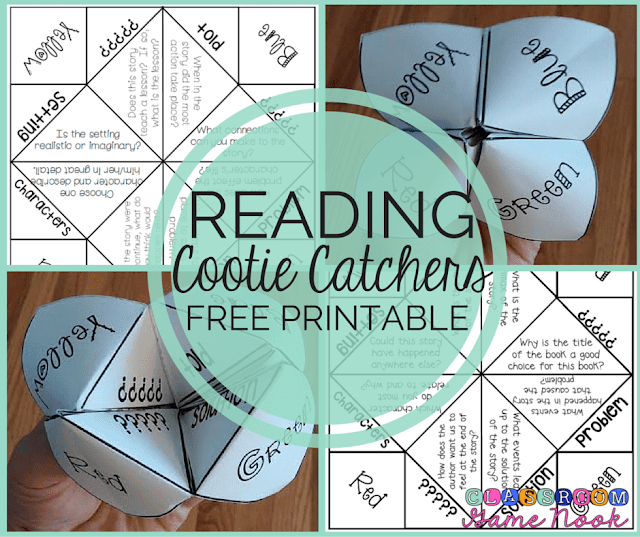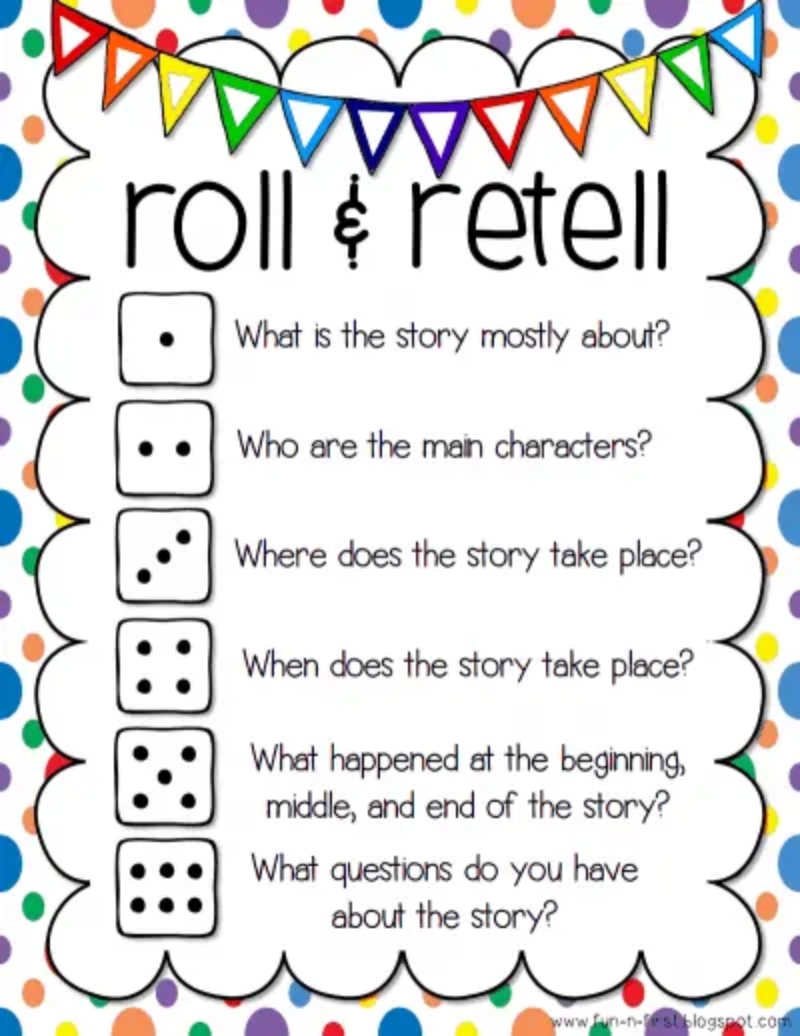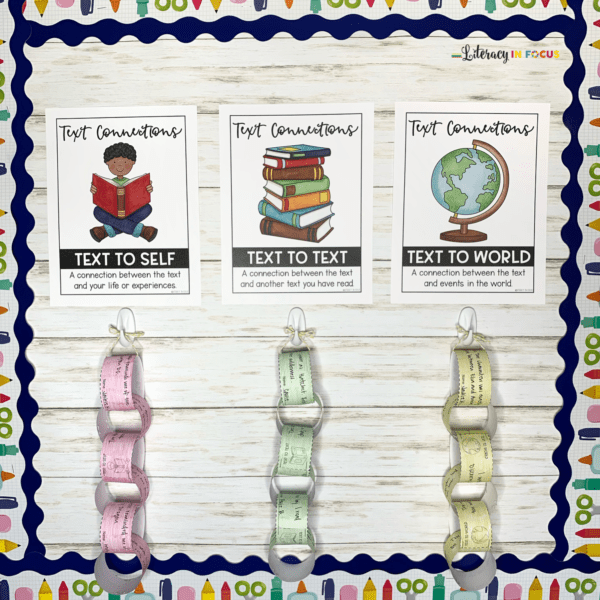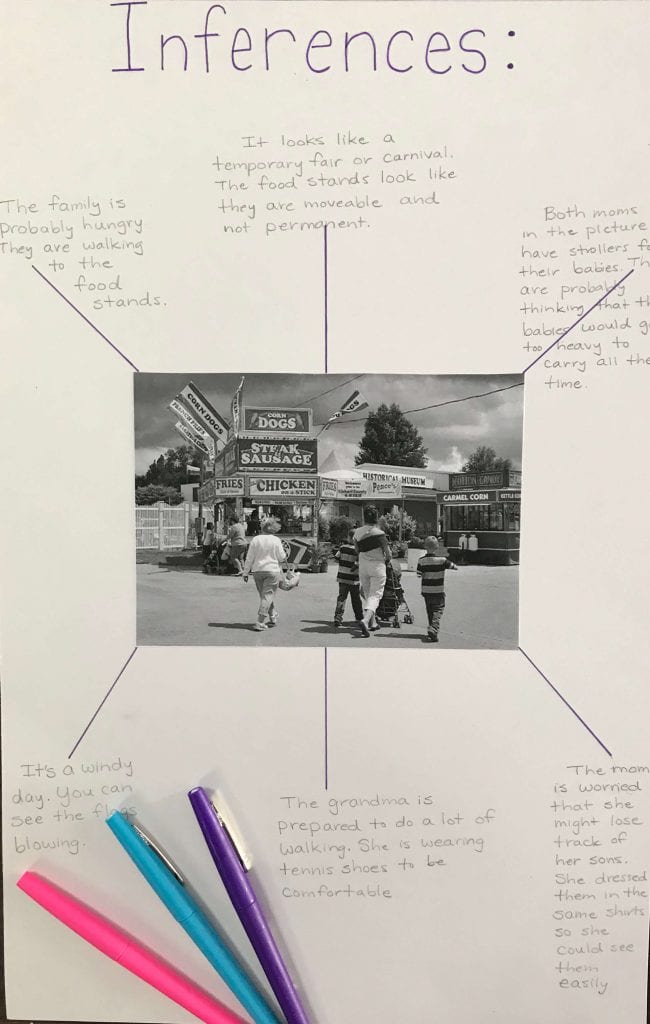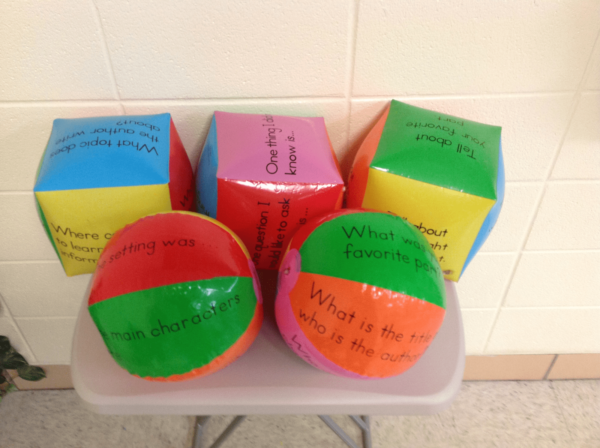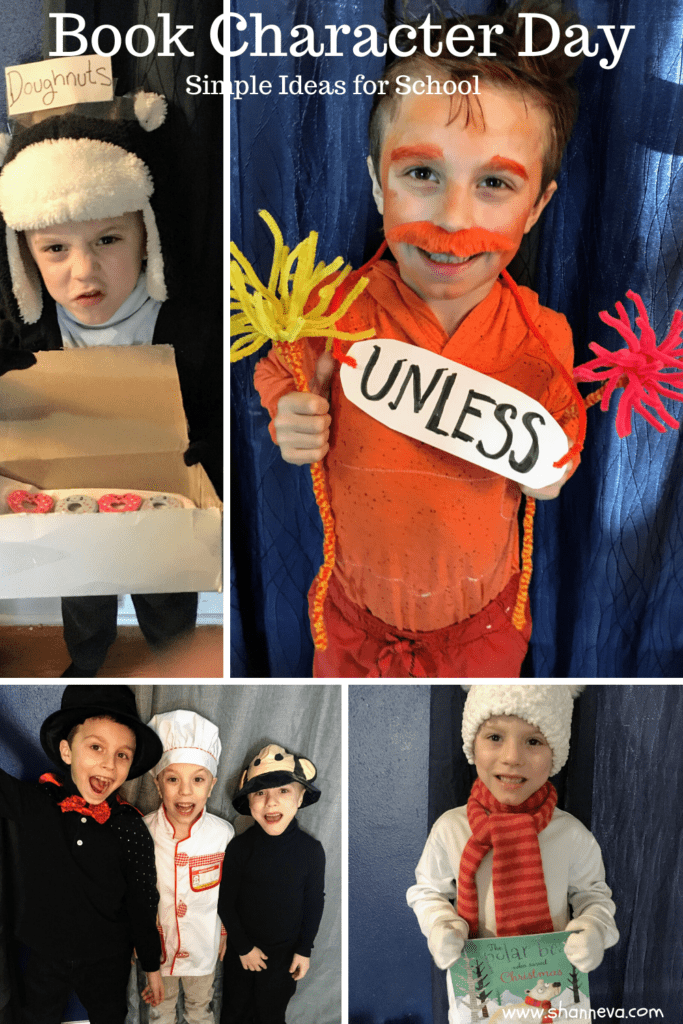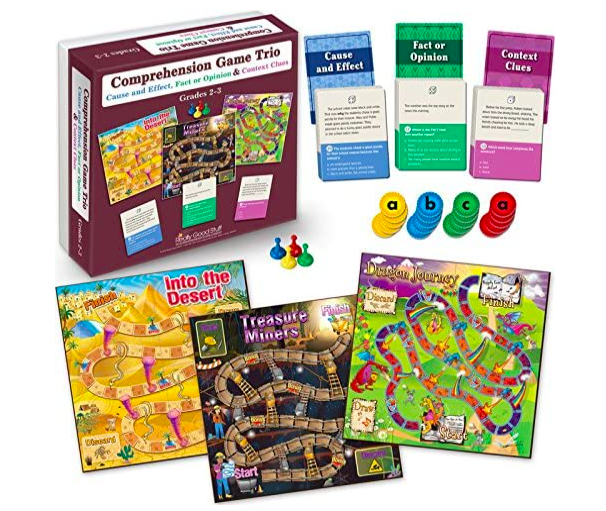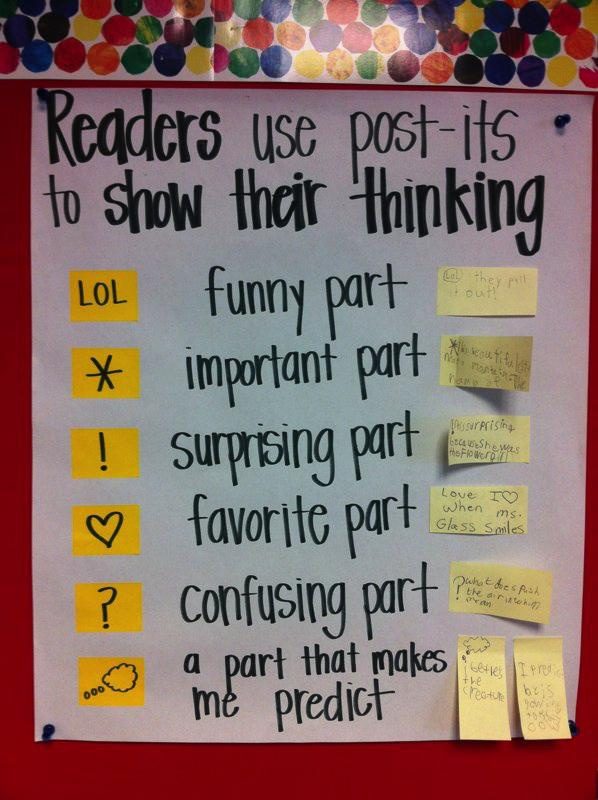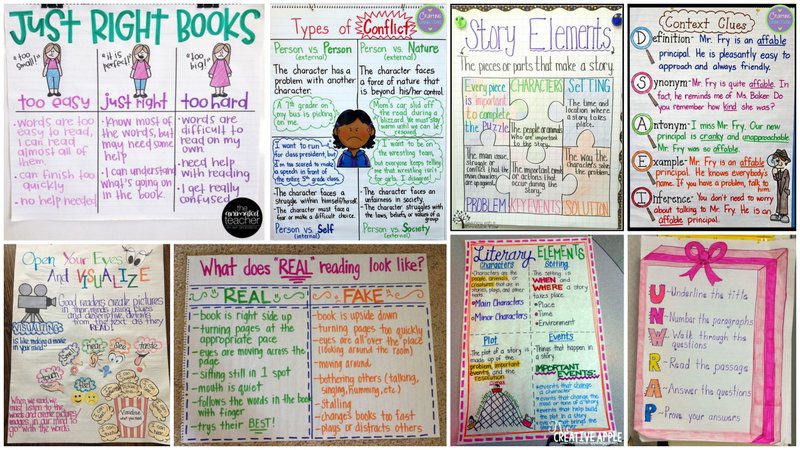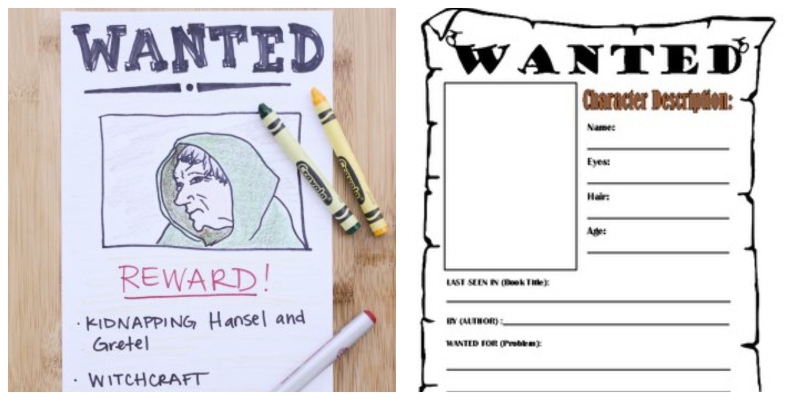By the third grade, most students are really starting to get the hang of reading. They are enthusiastic readers, with preferences for particular themes and genres and opinions about everything they read. Here are 18 third grade reading comprehension activities that will help them dig deeper into what they’re reading and build skills to carry them to the next level.
(Just a heads up, WeAreTeachers may collect a share of sales from the links on this page. We only recommend items our team loves!)
1. Build a Comprehension Cootie Catcher
Turn reading comprehension into a fun game with these free cootie catchers. There are three different versions available, and each has questions that will help your students dig deeper into their reading. Each cootie catcher tackles elements of third grade reading comprehension like character, plot, setting, problem, and solution, and the questions are general enough that they can be used with any book.
Learn more: The Classroom Game Nook
2. Practice determining importance
Have you ever asked a student to summarize a story, only to hear them include every little detail? Or maybe they only retell a small part of the text, excluding important characters or events. What these readers need to learn is to discriminate between what is and what isn’t important. And in order to do this, they must sort through the actions and/or information they’ve read and decide on their importance. This is where graphic organizers come in. Check out the blog below for two effective lessons on determining importance.
Learn more: This Reading Mama
3. Play a round of Roll and Retell
One of the best ways to help students build comprehension is giving them a chance to talk about what they’ve read. This is a fun game to play, and all you need is a pair of dice. Students can pair up and share information with one another about what they’ve read. Or they can work solo and roll the dice and write out their answers.
Learn more: Home School Giveaways
4. Practice inferring with wordless books
Wordless picture books are great for making inferences. Use this free graphic organizer along with wordless picture books. On the graphic organizer, students describe what they noticed in the illustration and what they were able to infer from that illustration. Students could practice on their own or work with a partner or small group. Have each student or group use a different book or use the same book and then compare the inferences.
Learn more: Ashleigh’s Education Journey
5. Make a paper chain of connections
Good readers make connections as they read. Track your students’ connections with this engaging visual activity from Brooke at Literacy in Focus. First, students write their connections on colored strips of paper (each type of connection is made on a different color). Next, students link up their connections and attach them to the corresponding text-connections label or poster (see the example bulletin board at the link below). Links can be added throughout the year as new texts are read. The link-up activity makes a great visual representation of the entire text-connections process.
Learn more: Literacy in Focus
6. Use story maps
Story maps give students a framework to record their thinking before, during, and after reading. From spider webs and stars to Venn diagrams and shaped maps, there are endless formats of story maps available online. Try the 15 free versions below.
Learn more: Education.com
7. Build inference skills
Check out this blog for eight fun activities to build students’ inference skills, including watching short films, reading wordless books, and using picture task cards.
Learn more: The Teacher Next Door
8. Summarize using basic signal words
As students read a text, they keep track of words that answer the questions who, what, when, where, how, and why by writing them on a sticky note. After they write the words, they attach their sticky notes to a record sheet. Once they finish their note taking, they summarize the story using their notes.
Learn more: This Reading Mama
9. Bat around a beach ball
Using a Sharpie marker, write different questions for students to answer about the book they are reading. Hit different elements such as character, problem and solution, setting, connections, predictions, etc. Kids will have a blast batting the inflatables around as they build comprehension skills.
Learn more: Conversations in Literacy
10. Run a nonfiction relay race
According to instructor Clio Stearns, Ph.D., “Kinesthetic games allow third graders to put their bodies to use alongside their minds and can be particularly helpful for students who do not like to sit still or who benefit from multi-sensory approaches to learning.”
One of her ideas for boosting reading comprehension is to run a nonfiction relay race. This activity is great after reading a nonfiction book or article together. Break students into teams and head to the gym or outdoors. Set up a racecourse, for instance 100 yards marked off by flags or one lap around the track. The first student on each team will run the course, and once they return, and before the next student in line can run, they must repeat one fact they learned from the reading. The first team to have all runners complete the course wins.
Learn more: First Cry Parenting
11. Hold a Book Character Day
Kids love Book Character Day! It gives them a chance to show how much they really know about one of their favorite characters. Encourage them to dress as their character and carry props that are part of their story. Maybe they’d even like to act like and talk in the voice of their character. Be sure to set aside time for each student to tell their classmates about the character they chose and why.
Learn more: Shann Eva’s Blog
12. Retell a story with rock painting
Take a classic childhood art project—rock painting—and add a story for a creative, engaging third grade reading comprehension project. In this activity, children will read a book, then retell the story with pictures they have painted on stones.
Learn more: Education.com
13. Play a board game
There are many fun board games for the classroom that boost literacy skills, including Scrabble, Story Cubes, Tall Tales, Hedbanz, and more. Try this fun option, which has three different board games that students can play to boost their reading comprehension. Put it on your classroom wish list!
Buy it: Comprehension Board Game Trio on Amazon
14. Make a game show of it
Try a fun game show–style class game for third grade reading comprehension. It’s easy to play a Jeopardy-style game, interactive tic-tac-toe, or a team game where students buzz in with the answer. (Check out these fun game show buzzers on Amazon.) Divide students into teams, then ask comprehension questions by topic or just randomly. Give teams time to talk about the answer before sharing it. This allows students to learn from each other, explain their thinking, and prove their answers.
Learn more: A Love of Teaching
15. Track your thinking with sticky notes
According to Home Reading Helper, one great way for students to remember and internalize what they read is by using sticky notes. Using these symbols as a guide, students place a sticky note with the appropriate symbol next to a line in a book to show their thinking as they read.
Learn more: RB Comprehension Strategies
16. Be a word detective
We can teach inferring for a variety of purposes. Students can infer how a character feels or why they behave in a certain way. They can even infer the theme of a book. This engaging activity focuses on inferring the meanings of unfamiliar words. Using the free download, students pick out “mystery words,” make a guess as to what the word means, identify clues, and write a sentence using the word.
Learn more: The Measured Mom
17. Create anchor charts together
From marking a text to visualizing to understanding a character’s journey, there’s a comprehension anchor chart for it. There are more than 35 colorful samples for you to build along with your students during direct instruction time.
Learn more: Reading Comprehension Anchor Charts
18. Make “wanted” posters
Your kids will love this fun writing and drawing activity that demonstrates their understanding of character development. After reading a story, kids will use what they know about the bad guy in a book to create a wanted poster.
Learn more: Education.com and Happy Teacher Happy Students


